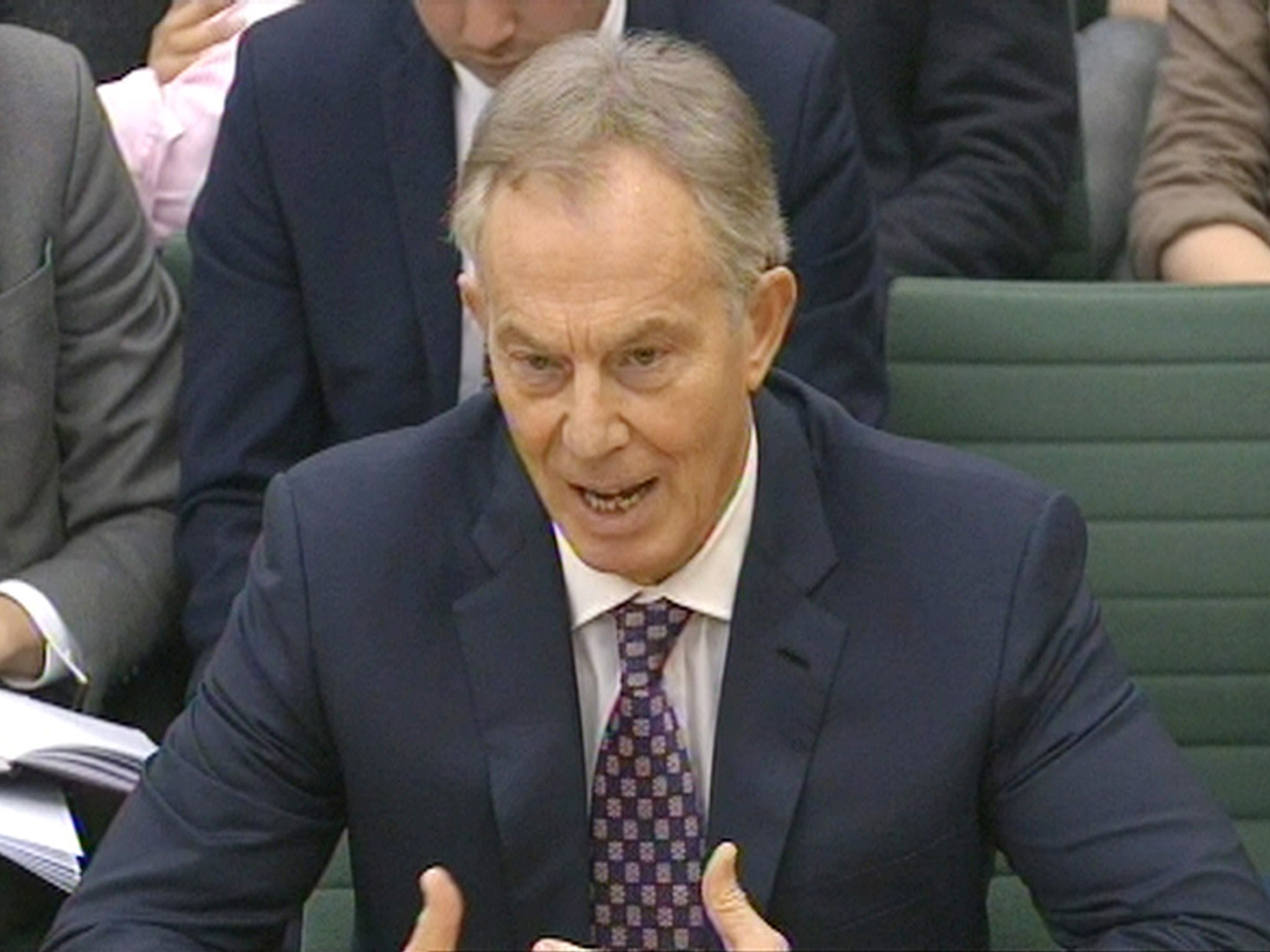Tom Peck's Sketch: If only Tony Blair had read Edmund Burke 12 years ago...
In his analysis of Libya the former PM echoed a point Burke made in a political pamphlet published 225 years ago

Your support helps us to tell the story
From reproductive rights to climate change to Big Tech, The Independent is on the ground when the story is developing. Whether it's investigating the financials of Elon Musk's pro-Trump PAC or producing our latest documentary, 'The A Word', which shines a light on the American women fighting for reproductive rights, we know how important it is to parse out the facts from the messaging.
At such a critical moment in US history, we need reporters on the ground. Your donation allows us to keep sending journalists to speak to both sides of the story.
The Independent is trusted by Americans across the entire political spectrum. And unlike many other quality news outlets, we choose not to lock Americans out of our reporting and analysis with paywalls. We believe quality journalism should be available to everyone, paid for by those who can afford it.
Your support makes all the difference.The Right Honourable Tony Blair walked in, sat down, and exchanged the usual pleasantries with a bunch of middle-aged men keen to ask him questions about bombing the Middle East.
It was déjà vu all over again. Butler’s been and gone. Hutton came and went. Sir John Chilcot continues his noble protest at the extortionate costs of printer cartridges.
But then Blair began to speak, and the sense of having heard it all before was suddenly over.
“The chemical weapons programme was much more extensive than we thought,” he said.
“The weapons were quite substantial: 3,500 chemical bombs, 23 tonnes of mustard gas, 1,300 tonnes of chemical precursors. Scud bombs and other things.”
Said chemical weapons, you may have already guessed, were in the wrong place. Libya to be exact. And the Foreign Affairs Select Committee were questioning him about Britain’s bombing of it in 2011.
Whether Colonel Gaddafi ended up regretting allowing Blair to “bring him in from the cold” in 2004, and persuading him to give up his weapons, was a question the men who dragged him out of a sewer seven years later and shot him with his own gun made of gold sadly didn’t take the time to ask.
But at least, we now know, the Colonel got the chance to have a decent conversation with our former PM.
“He was an individual who’d been shut off for three decades,” Mr Blair said. “He hadn’t heard sensible arguments.”
The result of this isolation was that, during this time, he had developed extensive theories on all manner of things. “He had theories on Third Way politics, on Israel and Palestine, on the development of Islam.”
Tragically, we were not treated to what these theories were. It was still a few years too early by then for the Colonel to have worked out something that may dawn on Blair at some point – that if the rich get exponentially richer, the poor are not going to like it.
“I remember getting a presentation from his Israel team that was on the eccentric end of the Israel-Palestine question,” Blair said. But he declined to admit he had stolen the Powerpoint slides and now displays them to drunk middle-management accountants in black tie for £200,000 a time.
His analysis of the Libya issue was spot on, however. “My view was that if you can get a peaceful evolution, it’s better than a revolution. It’s the revolution that produces the chaos.”
This is the identical point argued at some length by a rather well-known man called Edmund Burke, in a political pamphlet called Reflections on the Revolution in France; the essay has been essential reading for all students of history or politics in the 225 years since its publication. Blair must now have read it. He hadn’t done so 12 years ago.
Join our commenting forum
Join thought-provoking conversations, follow other Independent readers and see their replies
Comments